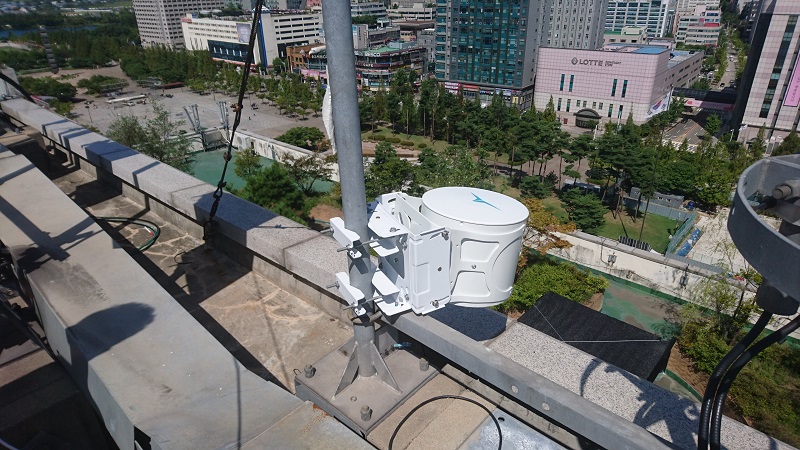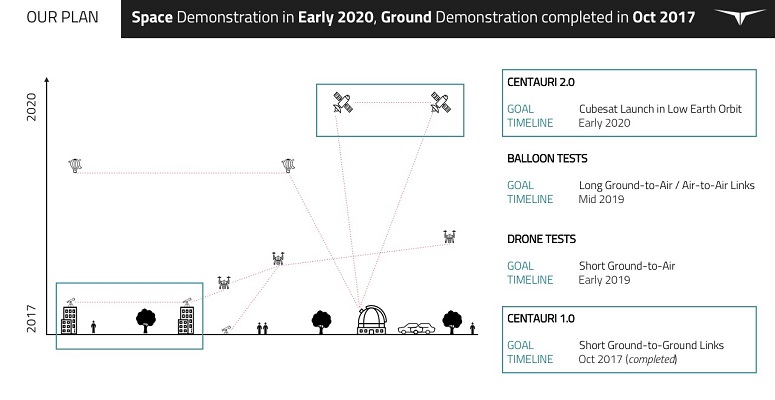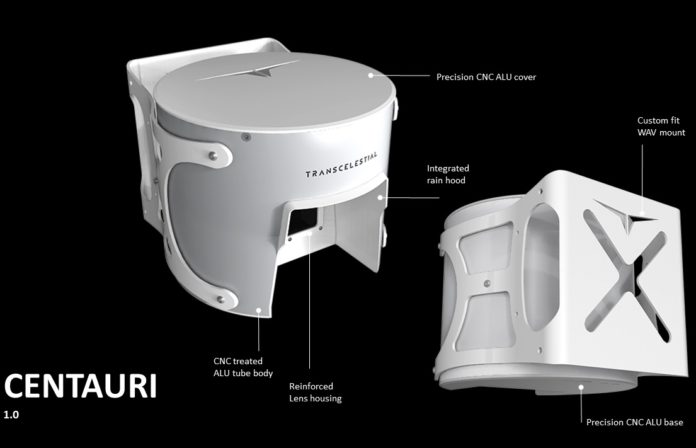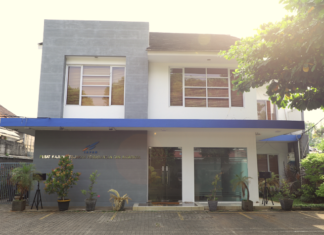Transcelestial Technologies, a Singapore-based startup backed by Entrepreneur First, SGInnovate, and Sparklabs Global Ventures, has raised S$2.5 million (US$1.8 million) in seed funding to develop lasers for wireless ultra high bandwidth communication technology.
Their seed funding, raised in December 2017, was led by Wavemaker Partners in partnership with SEEDS Capital (investment arm of Enterprise Singapore), and joined by Airtree Ventures, 500 Startups, Michael Seibel (CEO of Y-Combinator), Jonathan Schiff (Venture Partner, WI Harper Group), Charlie Songhurst (Microsoft’s former Head of Corporate Strategy), Josh Manchester (Champion Hill Labs), and other prominent Angel Investors.
Transcelestial was founded by Rohit Jha and Dr. Mohammad Danesh in 2016. The company is working to build the world’s “first Space Laser Network that aims to use wireless laser communication and nano-satellites to deliver commercial high speed internet anywhere on Earth.”
“We started Transcelestial because we saw an exciting future for humanity in the next 100 years but no action plan to build a scalable, underlying infrastructure needed, either on the planet or in deep space, to support that. The average cost of transcontinental high bandwidth undersea cables ranges from over hundreds of millions to billions of dollars in capital expenditure, and tens of million dollars in annual maintenance. Existing wireless technologies have reached high levels of spectrum congestion leading to a limit on how much connectivity they can support. Transcelestial’s radical new approach is needed to overcome these issues and ensure global connectivity in the next couple of decades,” said Rohit Jha, CEO and co-founder of Transcelestial.
In the company’s press release, Jha mused: “What connects the use of lasers in Bell Labs in the 1960s and the $10 billion Breakthrough Starshot initiative to send a satellite to Alpha Centauri by 2036? The attempt to use lasers for wireless ultra high bandwidth communication. Widespread commercial usage of such technology has been difficult since the 60s due to factors such as cost of technology, weather reliability and even need for such high data speeds. Emerging connectivity needs globally demand a breakthrough in this technology.”
Connectivity needs
In February 2017, USAID reported that over 4 billion people globally has no access to the internet. Bringing them online will be a costly undertaking. 95 percent of the world’s internet need is served by undersea cable infrastructure developed in the 1990s and 2000s.
Meanwhile, according to Data Age 2025, a study by IDC and Seagate, in the next 10 years the amount of data created and consumed is expected to grow more than ten times, mostly from machine-to-machine communication such as IoT, connected vehicles, and in-game AI.
Fund use
Transcelestial has been using its seed capital to turn its small office in Chinatown into a laser communication lab, employing some of the top engineers and scientists from multi-disciplinary fields. Funding will also drive research and development efforts into wireless laser communications for both terrestrial and space.
Currently, Transcelestial is testing an on-ground version of their prototype wireless laser communication technology to provide “state-of-the-art, fiber-like ultra-high bandwidth wireless backhaul to telecom and enterprise partners,” both within Singapore and overseas.
Technology demonstration with SK Telecom & Telecom Infra Project
One of the first public demonstrations of Transcelestial’s technology was a joint project with SK Telecom in South Korea and the Telecom Infra Project’s (TIP) Ecosystem Acceleration Center (TEAC) Initiative. Transcelestial’s wireless fibre optics technology was used to upgrade the backbone internet connectivity of a major public library near Seoul (South Korea), improving bandwidth by 20 times its existing speed.
“We at SK Telecom are closely working with Transcelestial to explore further inclusion of their technology in our wider commercial network across South Korea”, said JW Kim, Head of Open Collaboration Development, SK Telecom.

“TIP launched the TEAC program to foster collaboration between startups and players in the telecom industry. Transcelestial is a great example of how the TEAC model can work to accelerate great ideas by connecting bright entrepreneurs with innovative investors and operators,” said June Shin McCarthy, Manager of the TEAC Program.
At TIP Summit 2018, to be held in London this October, Transcelestial will share further details on R&D and commercial progress for both terrestrial and space.
Roadmap for the future
For the demonstration with SK Telecom, Transcelestial used their proprietary laser terminal and link technology, known as Centauri 1.0. This terminal is designed for terrestrial use, and a new terminal Centauri 2.0, is currently being developed as a space-based terminal. Centauri 2.0 will be a CubeSat in Low Earth Orbit, with a technology demonstration planned for 2020.
Between now and 2020, Transcelestial will also conduct drone tests (early 2019), and balloon tests (mid-2019), to test the efficacy of their ground-to-air, air-to-air communications technology.

Investor comments
“We are pleased to have had the opportunity to lead Transcelestial’s investment round as it aims to bring connectivity to emerging markets, deliver high-speed internet to cities, and eventually, bring their technology to space.” – Paul Santos, Managing Partner, Wavemaker Partners
“Transcelestial aims to bring global connectivity to the next level through their innovative technology in wireless laser communications. We are happy to partner with Wavemaker in this investment and aim to catalyse more of such strategic investments into deep technologies in the near future.” – Geoffrey Yeo, General Manager, SEEDS Capital
“Trancelestial is building wireless laser communication technology with a view delivering high-speed internet globally via nano-satellites. If they pull it off, this will be transformative for the more than 4 billion people still without internet access. We met the team very early on in their journey and were attracted by the combination of technical smarts and commercial interest from SK Telecom and others. We’re delighted to be backing Rohit, Danesh and the team.” – John Henderson, Partner, Airtree Ventures
“Transcelestial has an audacious ambition – to satisfy humanity’s insatiable hunger and need for connectivity and information both on earth and in space. Rohit and Danesh have achieved a tremendous milestone by successfully piloting their technology with SK Telecom and Telecom Infra Project and delivering exponentially faster data and internet speeds across long distances. We’re proud to be a part of that journey.” – Vishal Harnal, General Partner, 500 Startups







